El trayecto diario a la escuela es esencial para la infancia. Sin embargo, en todo Brasil, esta experiencia aparentemente rutinaria sigue conllevando riesgos inaceptables. En 2023, 878 niños y adolescentes perdieron la vida en accidentes de tránsito evitables, según DataSUS.
Porto Alegre, capital de Rio Grande do Sul, ilustra la urgencia de este problema. En 2024, además de la devastación causada por inundaciones históricas, se registraron 224 niños y adolescentes de hasta 17 años como víctimas de accidentes de tránsito. Esto representó un aumento de 11% con respecto al año anterior y subrayó la vulnerabilidad agravada de las poblaciones urbanas expuestas simultáneamente a riesgos climáticos y de tránsito.
A la luz de esta cuestión, Fundación Thiago de Moraes Gonzaga, Translab y iRAP, con el apoyo de FedEx Brasil, lanzó el Caminho Seguro (Caminos Seguros a las Escuelas) Proyecto. La iniciativa busca transformar los entornos escolares en espacios más seguros, inclusivos y resilientes mediante la combinación de evaluaciones de seguridad vial basadas en evidencia, la participación comunitaria, el urbanismo táctico y la promoción de un cambio permanente.
La intervención se centró en la zona de EMEEF Prof. Elyseu Paglioli y el Colegio Estadual Elpídio Ferreira Paes, dos escuelas del barrio Cristal que atienden a niños y adolescentes con discapacidad. La ubicación se eligió estratégicamente dada la concentración de usuarios vulnerables de la vía pública. Además de las escuelas, la zona incluye una guardería, un centro de salud, viviendas y actividad comercial, lo que genera un alto flujo peatonal y una mayor exposición al riesgo.
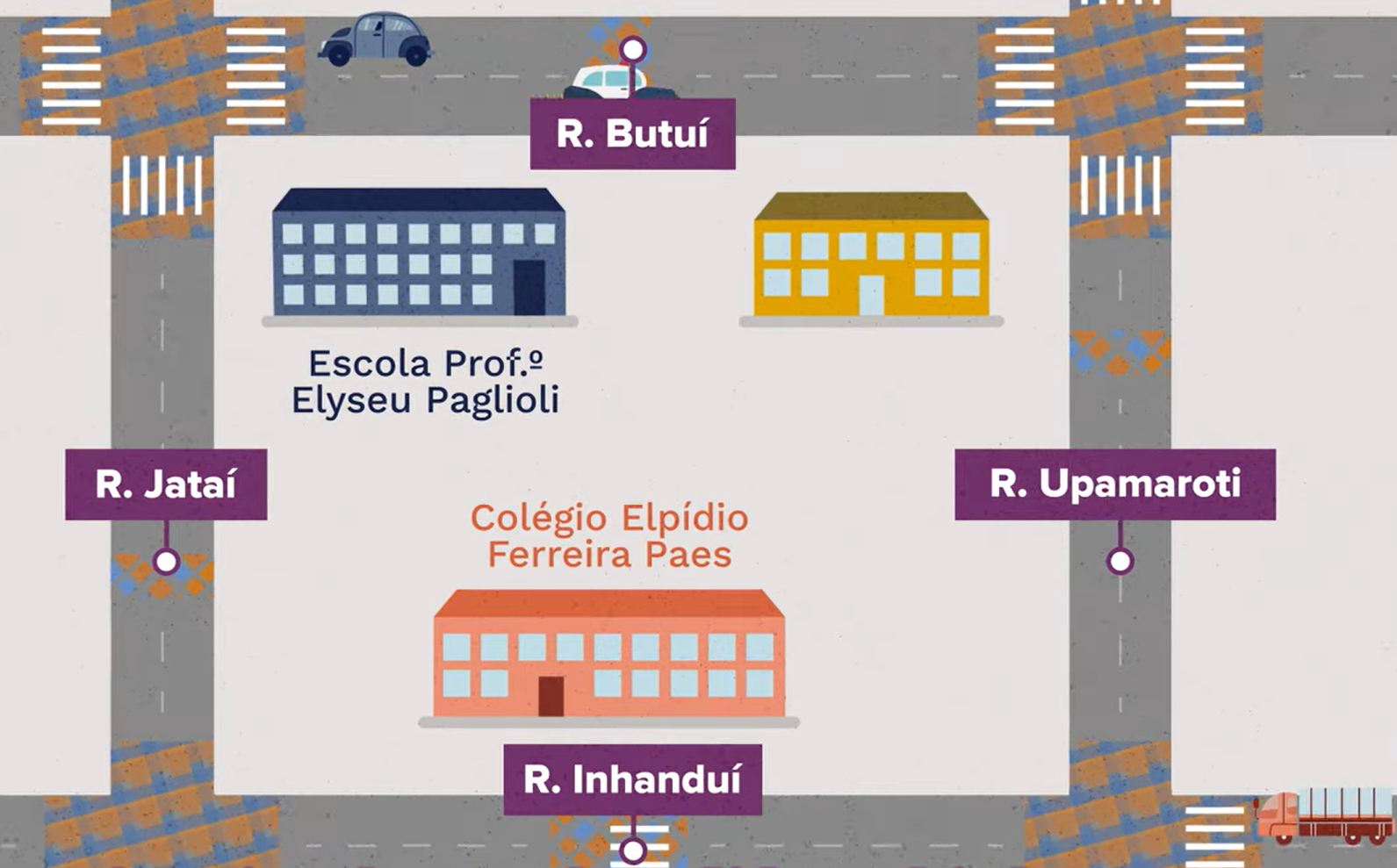
Crédito de la imagen: Fundación Thiago de Moraes Gonzaga.
El proyecto siguió un proceso estructurado y participativo. En marzo de 2025, los estudiantes participaron en talleres para reflexionar sobre sus desplazamientos diarios, identificar riesgos y aprender principios clave de seguridad vial. Sus entornos escolares también se evaluaron utilizando la metodología iRAP de Clasificación por Estrellas para Escuelas (SR4S), que proporciona una medida estandarizada de la seguridad de la infraestructura vial para peatones. Los resultados iniciales fueron alarmantes: la intersección clave cerca de las escuelas recibió solo 2,1 estrellas de 5, lo que indica condiciones inseguras debido a las altas velocidades, la señalización insuficiente y las deficientes instalaciones de cruce peatonal.
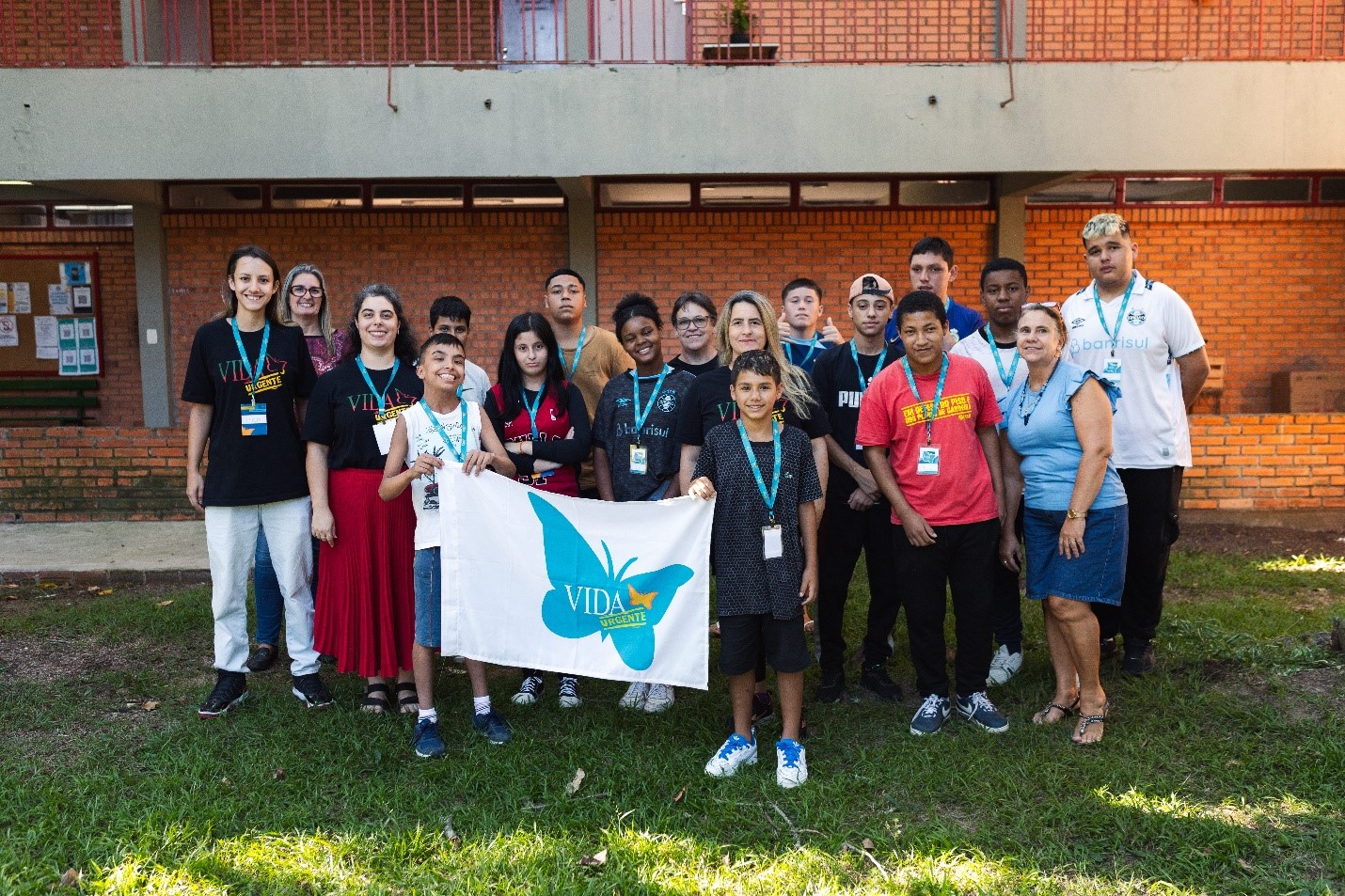
Crédito de la imagen: Fundación Thiago de Moraes Gonzaga.
Durante casi 30 años, la Fundación Thiago de Moraes Gonzaga se ha dedicado a salvar vidas en las carreteras. Esta colaboración nos permite ampliar nuestro impacto y garantizar que los niños tengan rutas más seguras de camino a la escuela. dijo Larissa Gonzaga, Coordinadora Institucional de la Fundação Thiago de Moraes Gonzaga.
Las perspectivas comunitarias influyeron aún más en la intervención. Una encuesta a 181 residentes, padres, docentes y estudiantes reveló que casi el 75% de los desplazamientos escolares se realizan a pie o en transporte público. Estos hallazgos destacaron la importancia de la movilidad activa y la necesidad crucial de diseñar entornos más seguros para los niños peatones.
Basándose en estos conocimientos y basándose en estudios de estudiantes de arquitectura de UniRitter y datos de la Empresa Pública de Transporte y Circulación de Porto Alegre (EPTC), Translab desarrolló un plan de intervención utilizando el urbanismo táctico, un enfoque de bajo costo, rápido e impulsado por la comunidad para mejorar la infraestructura peatonal.
Tras la aprobación, la intervención se implementó en julio de 2025, con la participación activa de los voluntarios de FedEx Brasil, quienes también involucraron a los residentes y comerciantes locales mediante actividades de divulgación. Las transformaciones físicas incluyeron:
- Mejoras de accesibilidad en aceras;
- Plantación de nueva vegetación;
- Estrechamiento de las esquinas de las calles para reducir la velocidad de los vehículos;
- Instalación de bancos frente a las escuelas y el centro de salud para brindar espacios de descanso a los peatones;
- Pinturas callejeras coloridas para resaltar cruces y zonas peatonales de alta afluencia;
A través de nuestro programa de compromiso global, FedEx Cares, colaboramos con organizaciones sin fines de lucro dedicadas a mejorar la calidad de vida en las comunidades donde operamos. También animamos a los miembros de nuestro equipo a participar activamente a través del voluntariado. La seguridad vial es una de las prioridades de esta labor, lo que refleja nuestro compromiso de conectar el mundo de forma segura y responsable», afirmó Claudia Rostagno, directora de Comunicaciones y Marketing de FedEx.
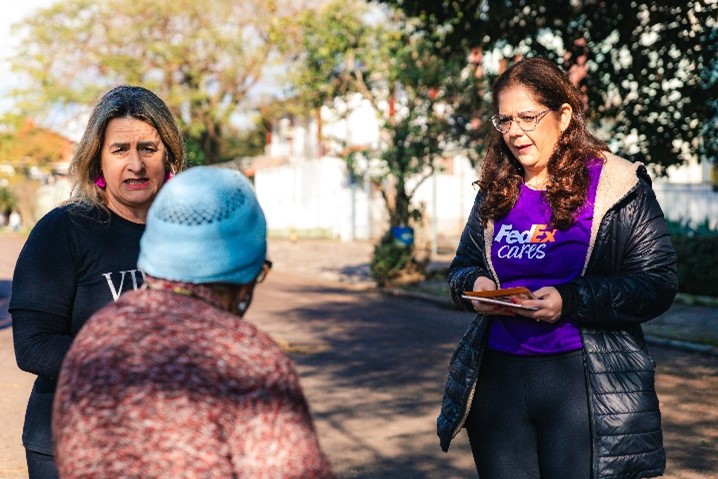
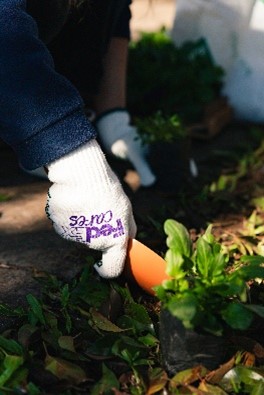
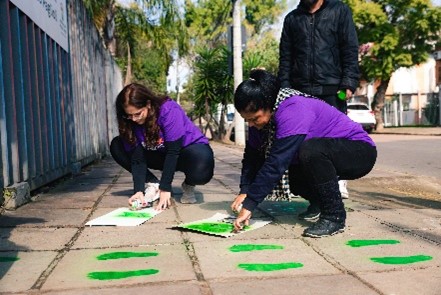
Los voluntarios de FedEx apoyaron la implementación de intervenciones de urbanismo táctico (Crédito de la imagen superior e imagen principal): Fundação Thiago de Moraes Gonzaga)
El proyecto ya está dando resultados prometedores. La calificación de seguridad del área de intervención mejoró de 2,1 a 3,9 estrellas, acercándose al estándar de 5 estrellas, que representa las condiciones más seguras para los peatones. Además, la proporción de vehículos que circulan a 30 km/h o menos ha aumentado en 39%. Más allá de su impacto inmediato en la seguridad vial infantil, el proyecto también incorporó infraestructura verde, generando cobeneficios para la resiliencia climática y el bienestar comunitario. Estas características son especialmente importantes para Porto Alegre, que continúa recuperándose de las inundaciones sin precedentes de 2024.
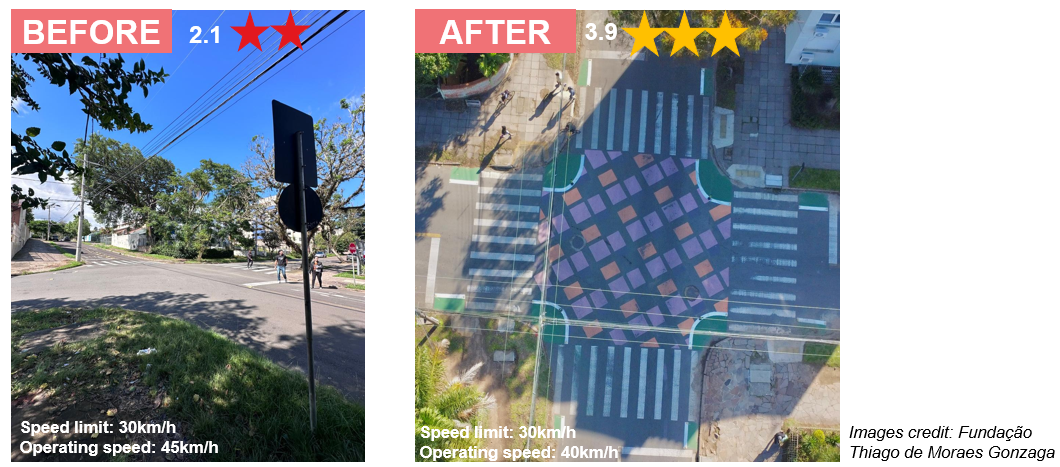
Cabe destacar que esta iniciativa es el primer proyecto de urbanismo táctico con arte callejero educativo en Porto Alegre. La respuesta de la comunidad ha sido positiva, con fuertes llamados a replicar el modelo en otras zonas escolares de la ciudad.
Como reflexionaron Leonardo e Isadora de Translab, Construir calles más seguras y vecindarios más resilientes requiere la colaboración de muchos, incluyendo estudiantes, familias, miembros de la comunidad y colaboradores como FedEx. Juntos, estamos transformando el camino a la escuela en un espacio de seguridad, dignidad y esperanza."
Al reunir a múltiples partes interesadas, el proyecto refuerza una verdad simple: El derecho a la educación debe comenzar con un viaje seguro a la escuela. La iniciativa también demuestra un modelo que puede replicarse para promover la seguridad vial, la equidad y la resiliencia en Porto Alegre y más allá.
Ver más fotos del proyecto aquí.

